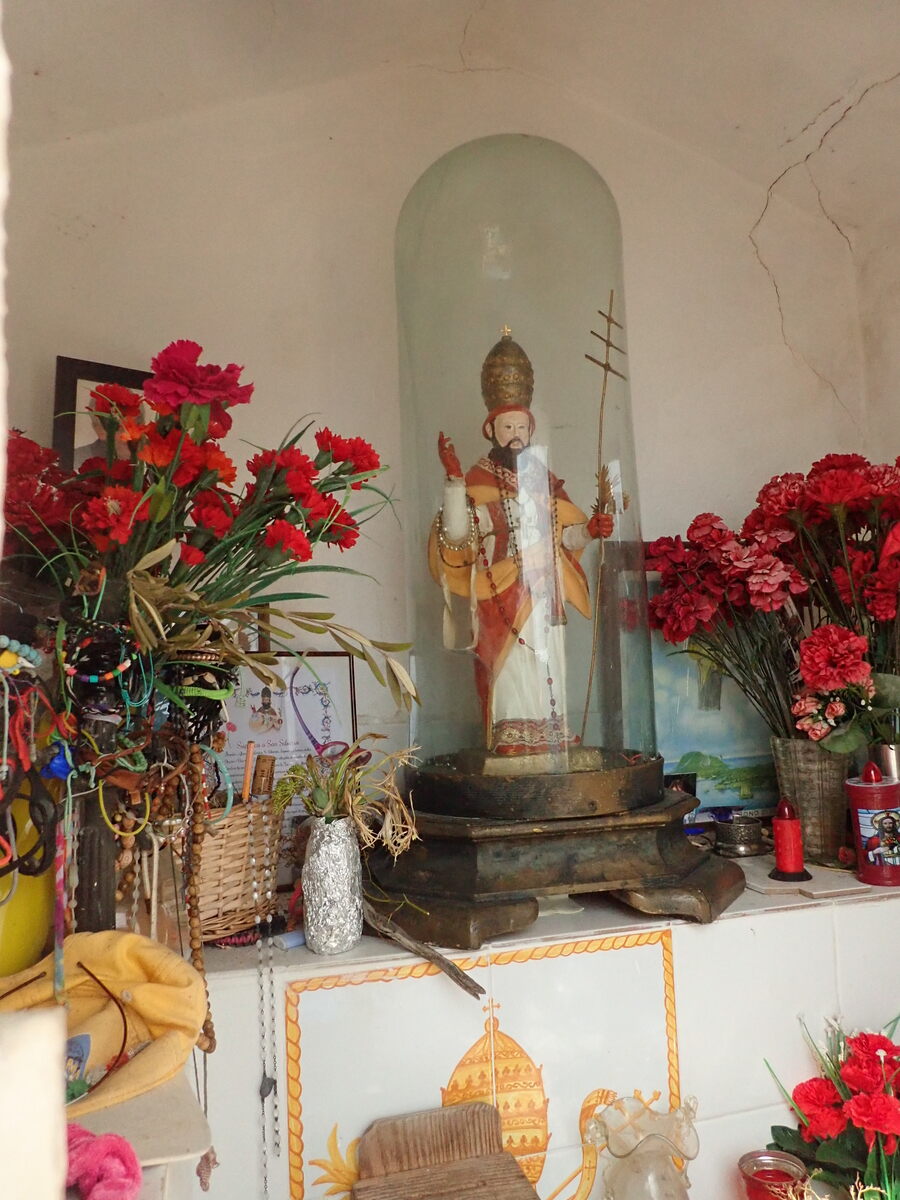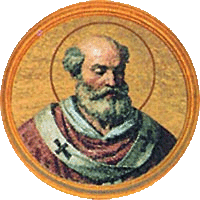Mark CHAP. 4
4:35–41
35. And the same day, when the even was come, he saith unto them, Let us pass over unto the other side.
36. And when they had sent away the multitude, they took him even as he was in the ship. And there were also with him other little ships.
37. And there arose a great storm of wind, and the waves beat into the ship, so that it was now full.
38. And he was in the hinder part of the ship, asleep on a pillow: and they awake him, and say unto him, Master, carest thou not that we perish?
39. And he arose, and rebuked the wind, and said unto the sea, Peace, be still. And the wind ceased, and there was a great calm.
40. And he said unto them, Why are ye so fearful? how is it that ye have no faith?
41. And they feared exceedingly, and said one to another, What manner of man is this, that even the wind and the sea obey him?
PSEUDO-JEROME. After His teaching, they come from that place to the sea, and are tossed by the waves. Wherefore it is said, And the same day, when the even was come, &c.
REMIGIUS. For the Lord is said to have had three places of refuge, namely, the ship, the mountain, and the desert. As often as He was pressed upon by the multitude, he used to fly to one of these. When therefore the Lord saw many crowds about Him, as man, He wished to avoid their importunity, and ordered His disciples to go over to the other side. There follows: And sending away the multitudes, they took him, &c,
CHRYSOSTOM. (Hom. in Matt. 28) The Lord took the disciples indeed, that they might be spectators of the miracle which was coming, but He took them alone, that no others might see that they were of such little faith. Wherefore, to shew that others went across separately, it is said, And there were also with him other ships. Lest again the disciples might be proud of being alone taken, He permits them to be in danger; and besides this, in order that they might learn to bear temptations manfully. Wherefore it goes on, And there arose a great storm of wind; and that He might impress upon them a greater sense of the miracle which was to be done, He gives time for their fear, by sleeping. Wherefore there follows, And he was himself in the hinder part of the ship, &c. For if He had been awake, they would either not have feared, nor have asked Him to save them when the storm arose, or they would not have thought that He could do any such things.
THEOPHYLACT. Therefore He allowed them to fall into the fear of danger, that they might experience His power in themselves, who saw others benefitted by Him. But He was sleeping upon the pillow of the ship, that is, on a wooden one.
CHRYSOSTOM. (Hom. in Matt. 28) Shewing His humility, and thus teaching us many lessons of wisdom. But not yet did the disciples who remained about Him know His glory; they thought indeed that if He arose He could command the winds, but could by no means do so reposing or asleep. And therefore there follows, And they awake him, and say unto him, Master, carest thou not that we perish?
THEOPHYLACT. But He arising, rebukes first the wind, which was raising the tempest of the sea, and causing the waves to swell, and this is expressed in what follows, And he arose, and rebuked the wind; then He commands the sea; wherefore it goes on, And he said to the sea, Peace, be still.
GLOSS. (non occ.) For from the troubling of the sea there arises a certain sound, which appears to be its voice threatening danger, and therefore, by a sort of metaphor, He fitly commands tranquillity by a word signifying silence: just as in the restraining of the winds, which trouble the sea with their violence, He uses a rebuke. For men who are in power are accustomed to curb those, who rudely disturb the peace of mankind, by threatening to punish them; by this, therefore, we are given to understand, that, as a king can repress violent men by threats, and by his edicts sooth the murmurs of his people, so Christ, the King of all creatures, by His threats restrained the violence of the winds, and compelled the sea to be silent. And immediately the effect followed, for it continues, And the wind ceased, which He had threatened, and there arose a great calm, that is, in the sea, to which He had commanded silence.
THEOPHYLACT. He rebuked His disciples, for not having faith; for it goes on, And he said unto them, Why are ye so fearful? How is it that ye have not faith? For if they had had faith, they would have believed that even when sleeping, He could preserve them safe. There follows, And they feared with a great fear, and said one to another, &c. For they were in doubt about Him, for since He stilled the sea, not with a rod like Moses, nor with prayers as Elisha at the Jordan, nor with the ark as Joshua, the son of Nun, on this account they thought Him truly God, but since He was asleep, they thought Him a man.
PSEUDO-JEROME. Mystically, however, the hinder part of the ship is the beginning of the Church, in which the Lord sleeps in the body only, for He never sleepeth who keepeth Israel; for the ship with its skins of dead animals keeps in the living, and keeps out the waves, and is bound together by wood, that is, by the cross and the death of the Lord the Church is saved. The pillow is the body of the Lord, on which His Divinity, which is as His head, has come down. But the wind and the sea are devils and persecutors, to whom He says Peace, when He restrains the edicts of impious kings, as He will. The great calm is the peace of the Church after oppression, or a contemplative after an active life.
BEDE. (ubi sup.) Or else the ship into which He embarked, is taken to mean the tree of His passion, by which the faithful attain to the security of the safe shore. The other ships which are said to have been with the Lord, signify those, who are imbued with faith in the cross of Christ, and are not beaten about by the whirlwind of tribulation; or who, after the storms of temptation, are enjoying the serenity of peace. And whilst His disciples are sailing on, Christ is asleep, because the time of our Lord’s Passion came on His faithful ones, when they were meditating on the rest of His future reign. Wherefore it is related, that it took place late, that not only the sleep of our Lord, but the hour itself of departing light, might signify the setting of the true Sun. Again, when He ascended the cross, of which the stern of the ship was a type, His blaspheming persecutors rose like the waves against Him, driven on by the storms of the devils, by which, however, His own patience is not disturbed, but His foolish disciples are struck with amazement. The disciples awake the Lord, because they sought, with most earnest wishes, the resurrection of Him whom they had seen die. Rising up, He threatened the wind, because when He had triumphed in His resurrection, He prostrated the pride of the devil. He ordered the sea to be still, that is, in rising again, He cast down the rage of the Jews. The disciples are blamed, because after His resurrection, He chid them for their unbelief. And we also when being marked with the sign of the Lord’s cross, we determine to quit the world, embark in the ship with Christ; we attempt to cross the sea; but, He goes to sleep, as we are sailing amidst the roaring of the waters, when amidst the strivings of our virtues, or amidst the attacks of evil spirits, of wicked men, or of our own thoughts, the flame of our love grows cold. Amongst storms of this sort, let us diligently strive to awake Him; He will soon restrain the tempest, pour down peace upon us, give us the harbour of salvation.
Catena Aurea Mark 4


